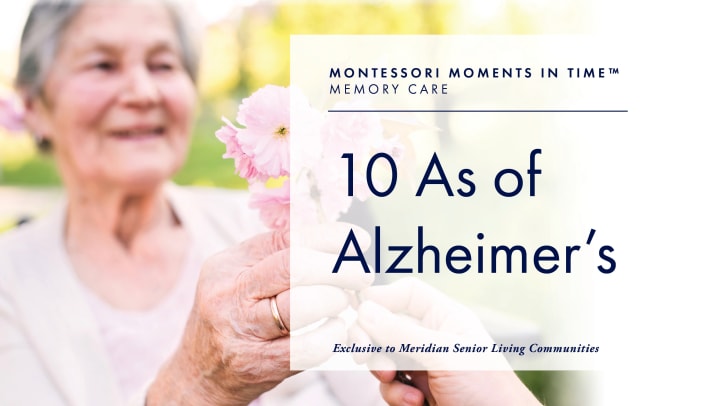Agitation and frustration are common behaviors for those with Alzheimer's and can lead to a feeling of hopelessness by you, the caregiver or family member. There are a few strategies that may help, but first, as hard as it is, you must come to terms that mom's or dad's reality may be different now. Trying to meet them in their world will help you to truly empathize with their feelings and could help you problem-solve whatever behavior you are facing. The goal is creating for your loved one the best life they can live, full of as much independence and purpose, while trying to redirect frustration and keep them safe.
While caring for your loved one, you may experience your own sadness and frustration or you may struggle to find balance. It's especially important for caregivers to make time for themselves. Creating an environment in which all of these tips can be performed all the time may not be realistic for you. Likely it will be exhausting, and at times, rewarding. A support group like the one we offer may help you meet other people in your same situation and offer a break away from your duties at home.
Here are some quick tips for caregivers as you learn to communicate with your loved one:
1. Arguments are useless. In fact, they often make matters worse. Confusion, memory loss and frustration are making the person behave irrationally, and you can’t argue them out of it.
2. Allow as much independence and freedom as possible, while keeping safety and comfort in mind.
3. Actions help when verbal communication fails. Help by demonstrating what you mean, or by starting the activity in question.
4. Assume that your loved one may understand and hear what you say even if they are confused. Do not say things in front of them as if they are not there.
5. Appreciate good moments or good days even though the person’s ability may not be what it used to be.
6. Appropriate and productive activities help pass the time and reduce agitation, boredom, daytime sleeping and depression. Give your loved one safe, realistic tasks or activities that can be easily finished and would be something he or she would have enjoyed doing normally, such as an art project or planting flowers.
7. Agitation is often alleviated when the caregiver remains calm, reassuring and respectful of the person’s feelings. "Centering" can help you get control of emotions when things get to be too much. Take a deep breath and exhale slowly numerous times until you can gain composure.
8. Adults with disabilities are still adults. It is important that they are always treated with respect and dignity.
9. Adapt a task or activity to fit the ability of the resident. Break down the activity into separate steps; simplify tasks by eliminating parts that could be frustrating.
10. Assessment is ongoing. What is safe and effective for now may change. Keep watching and reevaluating.


